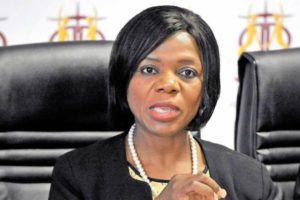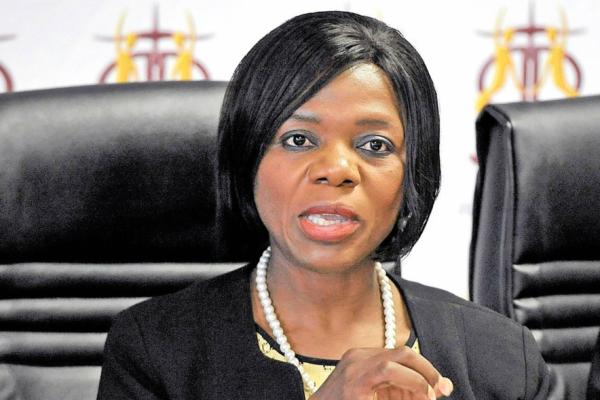
Public Protector Thuli Madonsela Picture: INDEPEDENT MEDIA
By: ANA
Pietermaritzburg – Public Protector Thuli Madonsela has called on Christians to act against wrongdoing in state affairs and society in the same way Christian leaders such as Bishop Peter Storey and the SA Council of Churches leaders did during the apartheid-era.
Madonsela was delivering the annual Peter Storey Memorial Lecture at the Seth Mokitimi Methodist Seminary in Pietermaritzburg, KwaZulu-Natal, on Friday evening.
Now in its sixth year, the lecture honours the legacy of Storey, one of South Africa’s prominent religious leaders and anti-apartheid activists. It further seeks to encourage synergies between religious thoughts and approaches to governance, as well as to encourage religious leaders to engage with civic issues and democratic governance.
Madonsela recited a 1960s poem of a white Christian by the name of James Patrick Kinney, titled The Cold Within. The poem is about looking the other way in the face of human suffering at your own peril in view of the inter-connectedness of humanity.
Madonsela said the best way to repay the debt of gratitude to Storey and his contemporaries for their efforts in the fight for a free South Africa was to choose not to look away in the face of human suffering.
She said Storey chose ethics over comfort and being liked by the powers of the day during apartheid. He had refused to use racial privilege to climb the ladder of life, instead using racial privilege to make a difference for the oppressed.
Although, 22 years into democracy, a lot of things had changed for the better, there was still gross human suffering in the country, including among poor students, school pupils, people without medical aid, unemployed youth, and those struggling to run small businesses.
“As many of us battle to cope with the automated or digitalised world referred to as the fourth industrial revolution, others are yet to access the benefits of electricity, which was the main benefit of the second industrial revolution,” Madonsela said.
The freedom attained in 1994 would remain meaningless for these people if those that worked for the state and members of the public “looked the other way”.
Madonsela said “meaningful freedom” referred to freedom from poverty and want, violence and crime, and hunger, among several other things. This kind of freedom further encompassed freedom from corrupt practices, both in the public and private sectors, inequality, and other forms of social injustice such as racism, sexism, xenophobia, and child abuse.
The public protector urged those in the employ of the state to ensure that they operated within the Constitution, particularly sections 195 and 237, which dealt with the principles of public administration and prioritisation of constitutional obligations, respectively.
Those working for the state had to maintain a high level of ethics, including avoiding and eliminating conflict of interest and corruption in the exercise of public power and control over public resources.
Ultimately, all state functionaries should subject themselves to the accountability measures designed to empower the people to exact accountability in the exercise of public power.
In addition to state functionaries, members of the public should play their part in consolidating democracy by not being “part of the problem”, such as taking part in maladministration, abuse of state power, and corruption, Madonsela said.
African News Agency (ANA)

